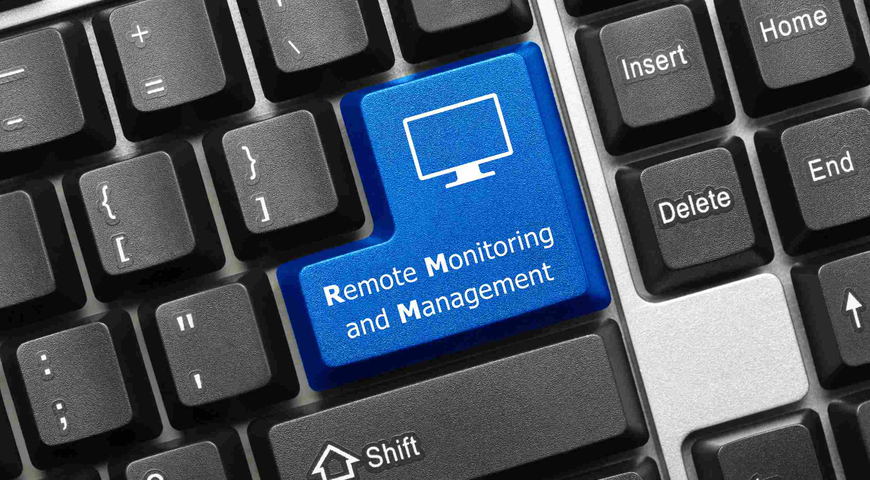What is backup software?
Backup software is a computer program that makes a copy of your files and folders or your complete system, including the operating system, applications and data. Advanced applications allow you to make multiple backups so that if one backup is damaged or unavailable, you have another with which to recover your data and/or systems.
Why do you need backup software?
There are many ways you can lose data on your computer, laptop, or mobile device – including suffering a cyberattack, hardware or software failure, a human-made or natural disaster, and a power failure. You can also lose your data if you accidently delete files or folders, if your computer is stolen, or if you spill coffee or another liquid on your device. In fact, there are so many ways to lose data, odds are it will eventually happen to you and when it does, you may permanently lose your data unless you have a backup. Consider backups as a type of insurance in that no matter whatever happens, you can recover.
How does backup software work and what are its benefits?
You can either obtain free backup software or purchase it from a variety of vendors. The software can be a service – called backup as a service or BaaS – or cloud-based. Once the software is initiated or installed, it will make a copy of your files and folders and store the backup on an external drive, DVD, USB or in the cloud. More advanced solutions, like Acronis True Image, not only back up your files and folders, but also your applications and operating system – your entire system. The features differ depending on the solution you choose, but here is a list of the basic features that most backup applications provide:
- Backup scheduling: Automatically run backups based on your schedule or when triggered by specific events.
- Compression and deduplication: Built-in, block-level data deduplication and compression significantly reduces data volumes, improves backup speed, and reduces storage requirements.
- Encryption: Encrypting data in transit and at rest helps protect your data from unauthorized access.
- Incremental and differential backups: These features only backup the changes made, saving time and optimizing storage space and network, disk and system performance.
- Recovery: You should be able to quickly restore only what you need from your backups.
The main benefit of backup software is that it protects your data regardless of what happens to your computer. The secondary benefit of backup software is its automation, which relieves you of the responsibility of running manual backups and lets you schedule automatic backups – thereby ensuring your backups are always up to date.
Choosing the right backup software? What do you need to look for?
There are many backup solutions on the market and all of them offer different features and functions. When you are evaluating what software to buy, we recommend that you look for these seven key elements:
- Ease of use: You want an easy-to-use backup solution – one that’s simple to install, run and monitor – and which offers a clean, intuitive user interface with customizable dashboards.
- Automation: A solution that incorporates automation enables you to set it and forget it. You can establish your backup processes up front, and your data is protected in the background. If something happens, you are notified via smart alerting procedures.
- Speed: Fast backup eliminates bottlenecks that can impact your day-to-day computing operations and quick recovery time gets your systems up and running in a matter of minutes.
- Reliability: You can decrease your risk of data loss if you only consider solution providers that are established and use proven technologies versus new entrants that use untested technologies.
- Versatility: If you are a business user, you may have a complex IT environment. Strong backup software backs up any kind of data and provides flexible storage options, including local disks, tape, SAN, NAS, the cloud, etc.
- Breadth: You, your co-workers and family have more than one device to protect, and each device may use different operating systems. Be sure the backup solution you chose can protect the different platforms you have.
- Data protection: Why have different solutions for backup and cybersecurity when there are integrated solutions that protect your data, applications, and systems – no matter what happens? Modern data protection solutions combine backup and security, so you only need one license and one dashboard – one solution to manage. Whether you lose data due to a cyberattack, natural disasters, hardware/software failure or human error, you can quickly recover your data and systems.
Pricing of backup software
Pricing for backup software for personal or home office use varies from vendor to vendor and is dependent upon the amount of storage space and the features offered. For example, Dropbox, IDrive, Microsoft OneDrive, Box, OpenDrive and Google Drive offer syncing services with free storage ranging from 2GB to 15GB per user.
The pricing for consumer backup solutions varies by vendor and most are based on the amount of storage space as well. Pricing can range from as low as $40 to several hundred dollars per year.
Acronis True Image
Acronis True Image (formerly Acronis Cyber Protect Home Office) offers everything you need to safeguard your device and backup data from all of today’s threats – from disk failures to ransomware attacks. Thanks to its unique integration of backup and cybersecurity in one, it saves you time and reduces the cost, complexity, and risk caused by managing multiple solutions.
Learn more about Acronis True Image or even better try it out for free.
About Acronis
A Swiss company founded in Singapore in 2003, Acronis has 15 offices worldwide and employees in 50+ countries. Acronis Cyber Protect Cloud is available in 26 languages in 150 countries and is used by over 21,000 service providers to protect over 750,000 businesses.



